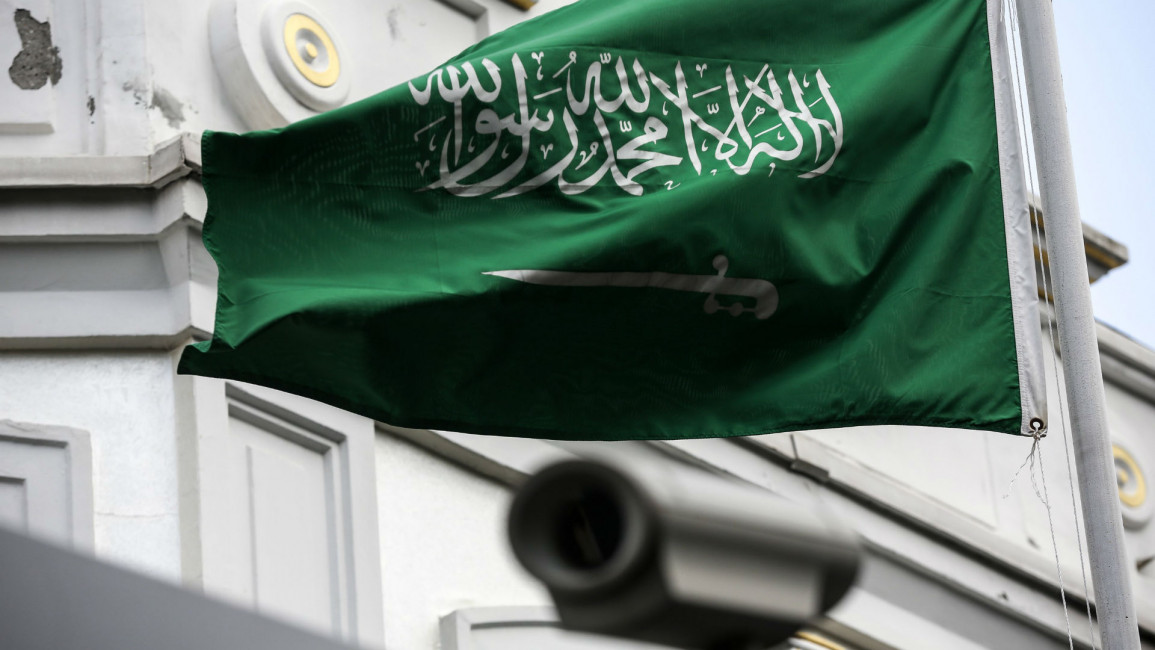Saudi Arabia's crackdown on critics continues despite 'reform drive'
A new Human Rights Watch report revealed that some 20 alleged critics of the crown prince have been this arrested in the kingdom year alone.
Thirty people have been detained since the killing of Khashoggi in the Saudi consulate in Istanbul in October last year, the rights group added.
Among those targeted in the crackdown are women's rights activists and their allies, including Khadijah al-Harbi, who was pregnant at the time of her detention, the report said.
Anas al-Mazrou, a lecturer at the King Saudi University was also detained in March for discussing the plight of women’s rights activists already detained in the kingdom.
The report also highlighted the kingdom's increased use of surveillance technology to hack the email and social media accounts of critics and dissidents across the world.
Israeli hacker-for-hire company NSO Group have been accused of spying on behalf of Saudi Arabia and other Gulf states.
Spyware was allegedly used to implicate Saudi journalist Jamal Khashoggi, before his murder and dismemberment in the Saudi consulate in Istanbul last year and whose body has never been found.
NSO Group's flagship malware, called Pegasus, allows spies to effectively take control of a phone - remotely and surreptitiously controlling its cameras and microphones from remote servers and vacuuming up personal and geolocation data.
But the arrest of human rights activists and critics of the Saudi state is nothing new, HRW's report noted, highlighting the kingdom's wave of repression that began with the inauguration of Saudi Crown Prince Mohammed bin Salman to his post in 2017.
However, "the sheer number and range of individuals targeted over a short period of time, as well as the introduction of new repressive practices", including extorting financial assets in exchange for freedom, was not seen under previous Saudi leadership, the report added.
The ongoing detention of dissidents and critics comes amid an initiative spearheaded by MbS himself to reform the ultraconservative kingdom, which has in recent months opened up its doors to the world in a bid to polish its image on the global stage.
Most recently, Saudi Arabia launched a visa programme allowing holidaymakers from 49 countries to visit one of the world's most closed-off countries. For years, the only foreigners allowed into the country were mainly Muslim pilgrims and business people.
It also eased its strict dress code for foreign women, allowing them to go without the body-shrouding abaya robe that is still mandatory public wear for Saudi women.
Prior to that, Saudi Arabia hosted K-pop superstars BTS who were the first non-Arab artists to perform at a stadium concert in the kingdom, though the move was slammed by rights organisations which dubbed the performance as an attempt to "whitewash" the kingdom's rights abuses.
"Mohammed bin Salman has created an entertainment sector and allowed women to travel and drive, but Saudi authorities have also locked away many of the country’s leading reformist thinkers and activists on his watch, some of whom called for these very changes," Michael Page, a deputy Middle East division director at HRW said.
"It's not real reform in Saudi Arabia if it takes place in a dystopia where rights activists are imprisoned and freedom of expression exists just for those who malign the dissidents."
The global fall-out over Khashoggi's killing rendered Prince Mohammed a pariah, testing alliances with Western powers and casting a shadow on his ambitious reform agenda aimed at weaning the kingdom off its dependence on oil.
The CIA has reportedly concluded that the crown prince, who controls all major levers of power in the Saudi government, likely ordered the gruesome killing.
A report by United Nations Special Rapporteur Agnes Callamard also said there was "credible evidence" linking him to the murder and an attempted cover up.
Prince Mohammed has said that he accepts responsibility, because it happened "under my watch" - but denied having ordered it.
Eleven suspects have been put on trial in Riyadh over Khashoggi's murder, five of whom face the death penalty, but hearings are held behind closed doors and the names of the defendants have not been released.
Amnesty International has denounced the trial in Riyadh as a "sham" and "a mockery of justice".
Despite the kingdom's efforts, international criticism of Saudi Arabia’s human rights record, including the gruesome murder of Khashoggi and a crackdown on female activists, could put off foreign visitors, observers say.
Follow us on Twitter and Instagram to stay connected



